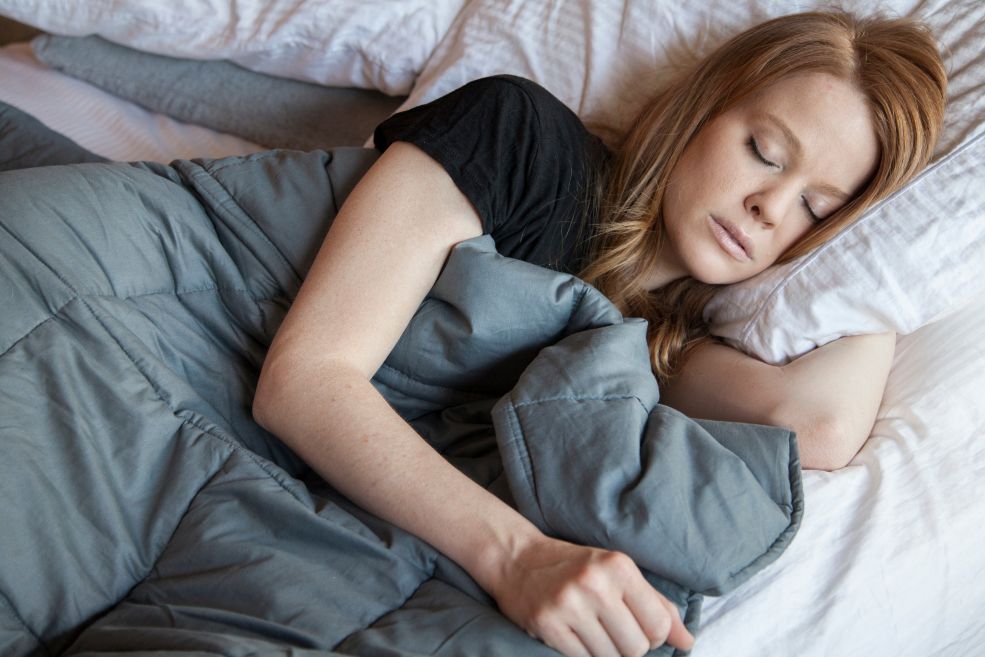
For many people, falling asleep and staying asleep can be a challenge, especially if they have a condition like sleep apnea. With many websites peddling solutions to help get you the rest you need, one product has been gaining a lot of attention lately: weighted blankets. Said to be useful for patients with sensory issues, anxiety, and even sleep disorders, how exactly do they work, and should you try one to treat your own OSA symptoms? Here’s the lowdown on weighted blankets.
What is a Weighted Blanket?
A weighted blanket is very similar to a regular comforter or blanket, except it is filled with tiny glass or plastic beads that give it extra weight. Many people who use them say it feels like being hugged to sleep or swaddled like an infant. This additional pressure can help increase feelings of calm, allowing you to relax enough to get some rest.
Weighted blankets are available in different weights (between five and thirty pounds), sizes, and textures, depending on your individual needs.
Who Can a Weighted Blanket Help?
While you don’t need to have a specific issue to treat to enjoy the benefits of a weighted blanket, many people experience the following perks:
- Fighting insomnia: Because weighted blankets help your body produce melatonin, and insomnia is linked to low melatonin production, weighted blankets can be helpful in fighting insomnia.
- Calming the nervous system: Weighted blankets help produce oxytocin, which is the same calming hormone that is released when you receive a hug.
- Stress reduction: Weighted blankets lower the body’s production of a hormone called cortisol, which is triggered by stress. While cortisol is extremely important in ‘fight or flight’ situations, it can be counterproductive when you’re trying to fall asleep.
How Can a Weighted Blanket Help with Sleep Apnea?
While each person is different, there may be some benefits to using a weighted blanket if you have sleep apnea. This is because the increase in melatonin may help you stay asleep longer. Furthermore, the oxytocin boost may also help you relax and remain relaxed, so you are less likely to wake up.
If you are interested in trying a weighted blanket, be sure to speak to your sleep doctor or dentist first. There is a chance that a blanket that is too heavy could worsen airway problems. Furthermore, it is important to be aware that some patients who have certain disorders such as claustrophobia may find weighted blankets to be stressful instead of calming.
Remember, if you struggle with sleep apnea, a weighted blanket may be a safe, effective option for helping you get a better night’s rest. If you’d like to see what all the buzz is about these useful products, speak to your doctor or dentist first. Sweet dreams!
About Dr. Rodgers
A board-certified sleep expert, Dr. Jeff Rodgers specializes in dental sleep medicine and is a Diplomate of the American Board of Dental Sleep Medicine (ABDSM) and the American Sleep and Breathing Academy (ASBA). He earned his BS in biology from Lee University in Cleveland, TN., and his dental degree at the University of Alabama School of Dentistry. To schedule an appointment for sleep apnea treatment at Sleep Better Georgia: Dental Sleep Medicine, visit our website or call us today at 770-394-4310 in Dunwoody or 770-288-5991.
